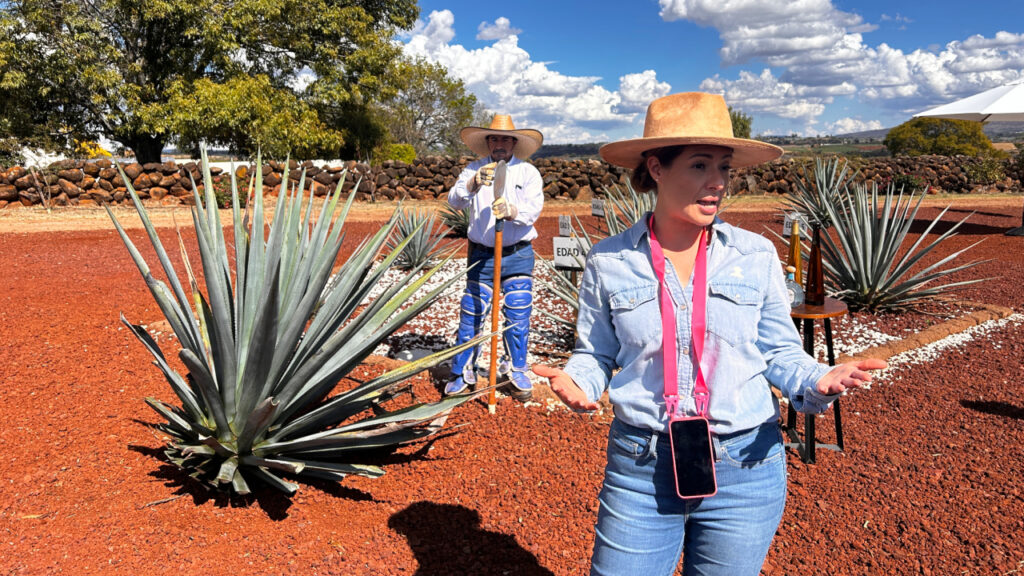
Meet the Woman of Color Leading America’s Largest Feminist Movement—And She’s Just Getting Started
For decades, the National Organization for Women (NOW) has been at the forefront of the feminist movement in America. The organization has always been championing women’s rights and advocating for gender equality. Today, under the leadership of Christian F. Nunes, the youngest person of color to serve as the organization’s president, NOW is evolving to tackle the unique challenges women face in 2024. With over 100,000 members across all 50 states, Christian is laser-focused on mobilizing women’s power to create lasting change.
How Christian F. Nunes is leading a modern, intersectional Feminist Movement
Christian F. Nunes isn’t your traditional president. As a woman of color and licensed clinical social worker, she brings a fresh perspective to a role redefining what it means to lead one of the largest grassroots women’s organizations in the United States.
Christian’s vision is clear: to ensure the feminist movement is intersectional, amplifying the voices of marginalized communities, and centering the concerns of younger generations.
“Between restrictions on reproductive rights, increased violence against women on and offline, and deliberate acts of voter suppression, there is a clear regression in today’s political climate tied to two root causes: a disregard for community and a lack of social values,” Christian told FIERCE.
As she works tirelessly to make feminism relevant and accessible to more women, Christian F. Nunes emphasizes the importance of unity. She knows that the stakes are higher than ever, with reproductive rights under attack and women’s freedoms being restricted in unprecedented ways.

Prioritizing reproductive rights and political action
One of Christian’s primary goals as NOW president is to ensure women are organized and ready to take action in the upcoming presidential election. With Kamala Harris running to become the first female president of the United States, Christian sees this moment as pivotal. For her, women’s reproductive rights are not just a political issue—they’re a top priority.
“Restrictions on reproductive rights disproportionately affect communities of color and low-income individuals, exacerbating existing health disparities,” Christian shared. “Women cannot be free and equal if the government has made it clear that we are not to be trusted with our own medical decisions.”
To confront this, NOW has mobilized its 550 chapters and more than 100,000 members to register voters and educate the public on the importance of electing leaders who support women’s autonomy. “We are organizing in every city and town and everywhere in between, across the country, to mobilize and turn out voters,” Christian stated in an interview with Reuters. “This isn’t just about one election; it’s about securing a future where women’s rights are protected and respected.”

Christian F. Nunes is breaking barriers and redefining leadership
Christian’s rise to leadership wasn’t a straight path. Before becoming president of NOW, she was a mental health expert and small business owner with a deep commitment to social justice and community organizing. This diverse professional background makes her uniquely qualified to lead NOW through its current transformation.
“When I was nine, I thought I wanted to be a lawyer,” she shared during our interview. “But my dream shifted when I realized the impact of hands-on support and the importance of showing communities that people who understand them on a basic level are there to help.”
Her journey from social worker to president of NOW is a testament to the power of resilience and determination. In 2019, she became NOW’s vice president. One year later, she stepped into the role of president during one of the most tumultuous times in recent history. Christian now oversees the organization’s chapters and members nationwide, ensuring that every voice is heard and every perspective valued.

The power of the women of color vote
Christian F. Nunes knows the path to the White House and beyond runs through the woman of color voter. In an election year where every vote counts, she’s leading a targeted effort to elevate and activate this key demographic, recognizing the immense power women of color have in deciding elections.
“Racial justice for women in everyday interactions and practices can take many different forms, but it boils down to representation and respect,” Christian said. “Regardless of circumstance, representation matters because valuing diverse voices significantly translates to greater inclusivity, connection, and empathy in our institutions and society.”
When Christian thinks about the women she looks up to throughout history, a common thread is their willingness to find internal respect, “not accept disrespect, and speak out for their beliefs, even when nearly everyone tried to exclude them,” she explains. “Legendary feminist Audre Lorde said, ‘If I didn’t define myself, for myself, I would be crunched into other people’s fantasies for me and eaten alive.’ This means that you have to live your life authentically and unapologetically so that, at the end of the day, you are at peace with yourself. I carry this reminder with me every day and urge everyone to do the same, whether you are just starting in your career or have pursued your passion for decades, to do the same.”

Health inequity in 2024: A crisis for Women of Color
As a licensed clinical social worker, Christian F. Nunes has always been passionate about mental health and well-being. But today, she’s using her expertise to highlight another urgent issue: health inequity. The rollback of reproductive rights has disproportionately impacted communities of color, creating a health crisis that threatens the lives and autonomy of countless women.
“Health inequity in 2024 is rooted in the fact that women’s rights to protect our bodies have been stripped from us,” she shared. “In the end, women cannot be free and equal if the government has made it clear that we are not to be trusted with our own medical decisions. Restrictions disproportionately affect communities of color and low-income individuals, exacerbating existing health disparities and perpetuating oppression rooted in the intertwined systems of racism, sexism, and economic disparities.”
For Christian, achieving health equity means confronting systemic oppression in healthcare and fighting for policies that protect and uplift all women, particularly those from marginalized communities. This is personal for her, who understands firsthand the barriers women face in accessing care.
“My background as a licensed clinical social worker focused on behavioral health taught me the importance of mental health care,” she said. “I spent years advocating for women’s and children’s issues because they have always been the two groups most underserved and underrepresented. They are most directly impacted by violence, abuse, trauma, and social injustices. When you look at statistics, women and children bear the burden of harm, but there is a lack of research, resources, and visibility.”

Redefining Feminism for a New Era
Under Christian F. Nunes’ leadership, NOW is not only expanding its reach but also redefining what it means to be a feminist in 2024. With a focus on intersectionality, racial justice, and political action, she is paving the way for a more inclusive, dynamic, and powerful movement.
“We must work with our local and national elected leaders to ensure that legislation is created and passed that will help, not hurt, women,” Christian said. “I am proud to lead an organization like NOW that leads these efforts on many levels and addresses the issues women face from an intersectional perspective to dismantle oppressive systems of racism, sexism, and economic injustice.”
That’s exactly what she’s bringing to the table: a new vision for feminism, one that includes everyone, fights for everyone, and ultimately wins for everyone.
With her at the helm, the future of women’s rights in America is undoubtedly in strong, capable hands.




